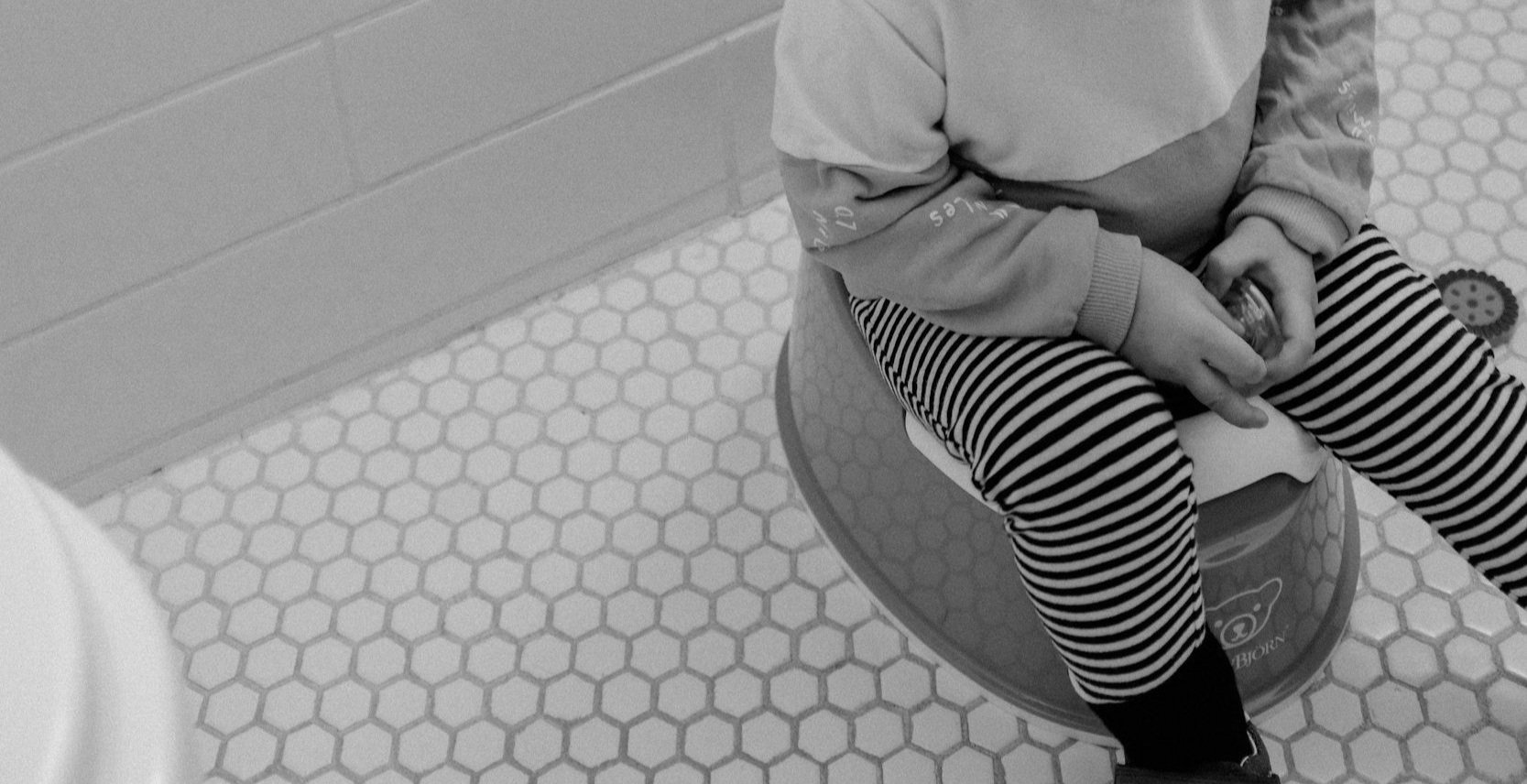
Potty training
Thinking about ditching the nappies? It’s a massive step for such small feet, but at KatieB Kids we have been supporting families with potty training since 2014.
Before your little one reaches for their big boy or girl pants, you might want to have a look at our top tips for successful potty training.
Is my child ready for potty training?
There is no magic age or specific sign that tells you when your child is ready. They all progress in different ways at different times. However, the most up-to-date NHS guidance explains that most children are ready to begin toilet training from around 18 months to 2 years and that starting to toilet train after 2 and a half to 3 years can make it harder for some children to learn this new skill.
There will always be a parent who delights in telling everyone that their little one whipped his nappy off way before his first birthday, took himself off to the toilet and has never had an accident since, but remember- it’s not a race or competition, nor is it an indication of your child’s intelligence.
They are nearing being ready when:
They tell you when they are wet or dirty
They recognise when they’re weeing (they might tell you, but some children go off into another room, or even hide behind furniture or curtains to poo or wee, because they know exactly what’s happening)
They can go for an hour or more without wetting their nappy (if it is less, potty training will probably fail or turn out to be extremely hard work)
They can tell you they’re about to go.
All or some of these may mean they’re developing a consciousness around their bladders and bowels and are starting to have some control over them. If you’ve seen a few of these signs, it may be time to go for it.
Buy a big, comfortable potty and leave it indoors for a couple of weeks. Let it become part of the furniture. Talk to your child about how exciting it is and explain what it’s for. Your child might love the idea of getting rid of their nappy and sit on it right away, or they may prefer to use it as a hat, or a place to store toys for a while!
Don’t worry either way, just go for it:
Pick a week when you can devote a few days to toilet training and stay mostly indoors. If your little one is at nursery, let the staff know, because they’ll be an enormous help.
Take your child to the toilet every time you go.
Watch out for the ‘wiggly-jiggly dances’. Kids will hop from foot to foot, squirm and hold themselves when they need to wee.
Get them to drink lots (this will stretch and grow their bladder and help with control in the long-term).
Don’t make a big fuss about accidents (there will be accidents!). Mop it up and assure them it doesn’t matter.
When sending your child into nursery, make sure there are lots of spare clothes in their bag (including socks!) so that they can be changed as many times as necessary. Our educators understand it’s all part of the process, so please don’t feel guilty about it!
If they do manage to hit the target, don’t go crazy, but a little praise goes a long way. See our blog on making praise powerful.
Most importantly though, if they’re getting too upset by anything, just put the nappy back on – they’re not quite ready.
Wait a few more weeks but leave the potty around. Let your child learn about the toilet from watching other people in the house go and just be patient. A stressed child will take twice as long to get there as one who’s having lots of fun along the way.
In the meantime, there are lots of places you can access further information to help you through the process:
Check out your local library. There are lots of lovely picture books that encourage use of the toilet. Cosy up together and read them before bedtime, safe in the knowledge that almost everyone gets there in the end.
We strongly recommend consulting the website for ERIC, The Children’s Bladder and Bowel Charity, who have extensive advice, including specific tips for toilet training children with additional needs.
As always, there is lots of information on the NHS website, including pages on how to potty train and common toilet-training problems.
Don’t forget that your child’s key person has had plenty of experience of supporting children through the toilet-training process, so please tap into their knowledge and ask questions, especially as they know your individual child so well!


